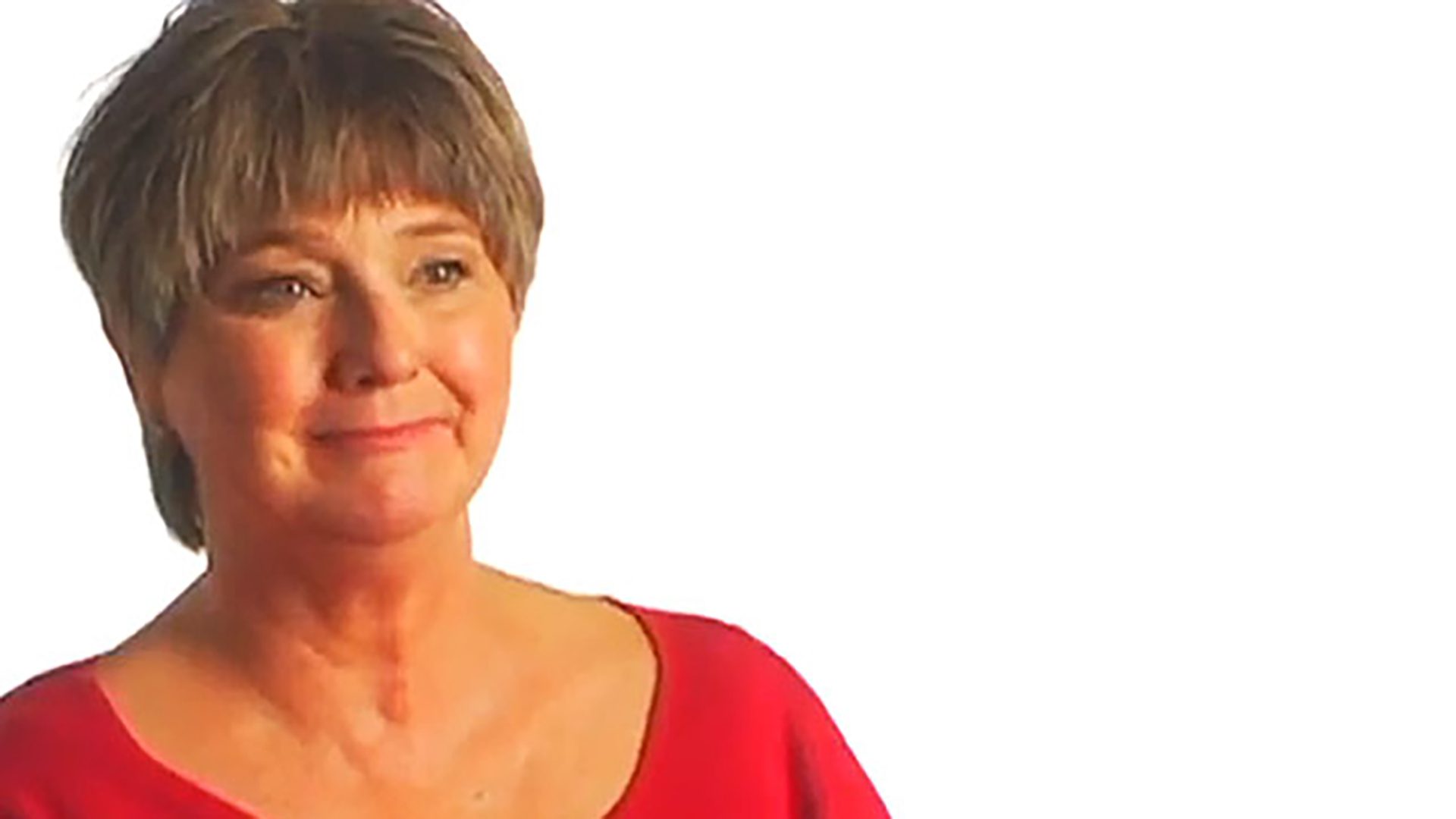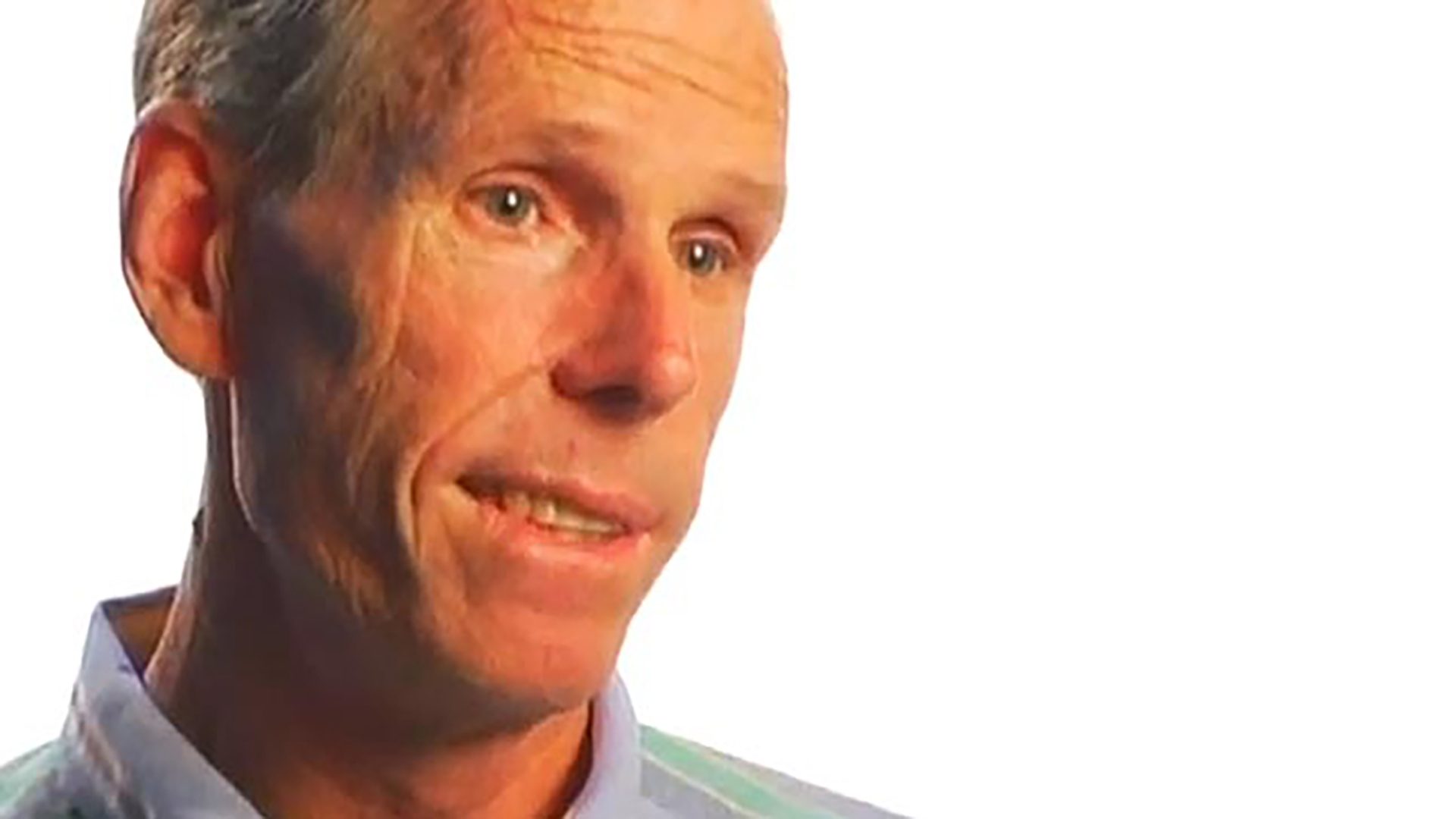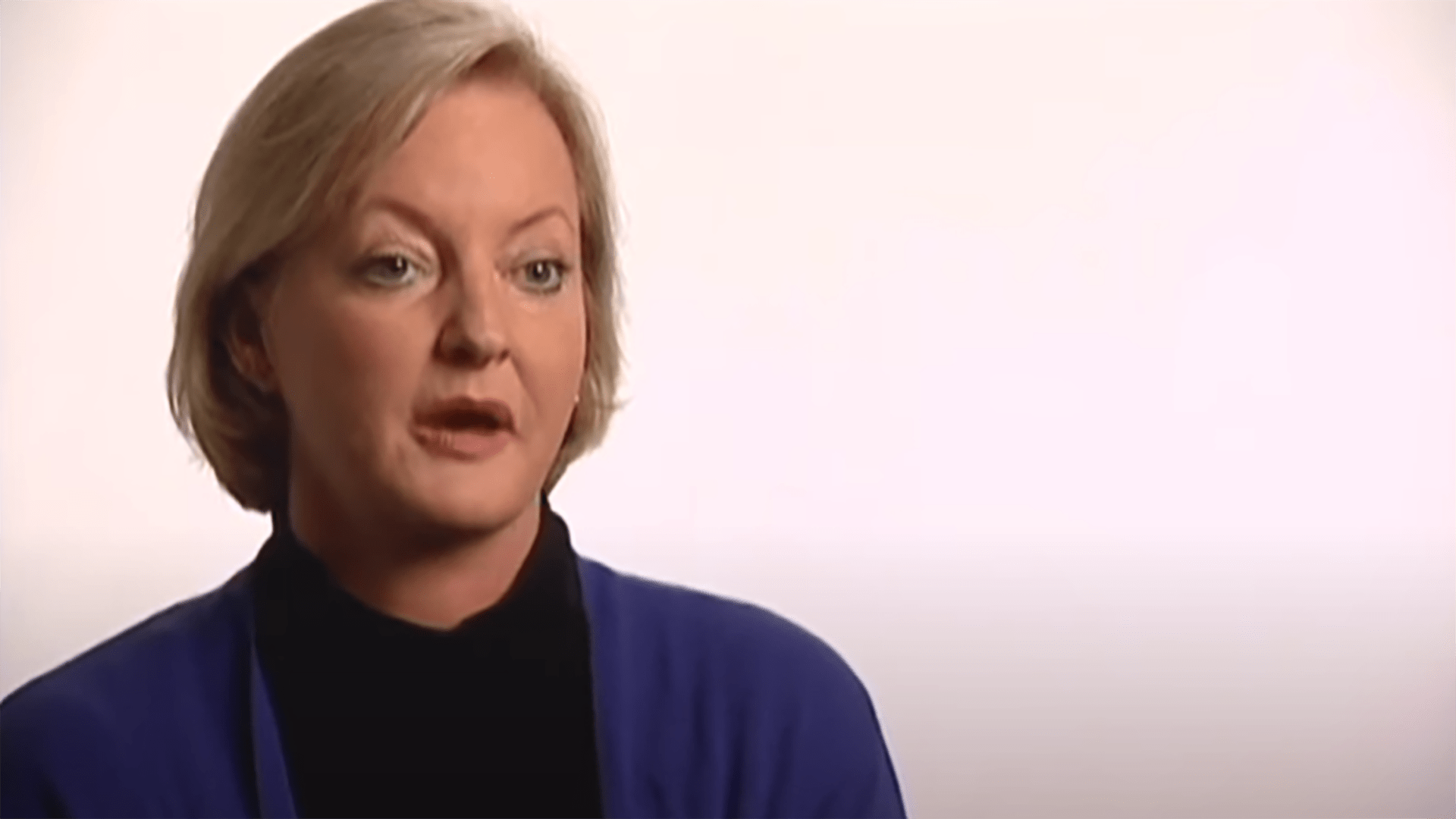Survivor Interview – Linda G.
Linda is a two-time cancer survivor. She talks about getting a second cancer, experiencing aftereffects of treatment, and losing her mother to cancer.

I became a cancer survivor when I was diagnosed with breast cancer in 1989.
I was 37, and I didn’t have a family history of breast cancer. I found the lump myself. I thought it was benign and got a mammogram. I was really surprised when it turned out to be cancer. I had a mastectomy, and then I had six months of very rigorous chemotherapy. The adjuvant chemotherapy then was more than they think is safe for you to have now. I had Adriamycin, which was really hard to take. I lost my hair, and that was before the good drugs for nausea. They didn’t have Zofran or Kytril or any of the newer drugs. I’d been a person who’d never had nausea. I’d never been sick at all. Amazingly, none of the drugs worked on me. I had to go on steroids, which was a little uncomfortable and made me gain weight. It made me feel funny and not myself, in addition to the chemotherapy.
One year later, I had reconstruction surgery. At the time that I had reconstruction, I think I really dealt with my body image issues about the mastectomy. I had a TRAM reconstruction. I’ve had no problems with it at all. I had a great plastic surgeon. The surgeon who did my mastectomy insisted that I go to this plastic surgeon and I did. The surgery wasn’t really difficult for me, even though it’s a difficult surgery for a lot of people. I had excellent results with it. No problems at all.
With the breast cancer, I didn’t feel bad at all. I found a lump, but I felt great. With the second cancer, I suddenly just felt bad. I had nausea all the time; unexplained, sudden nausea. So I started going to doctors for different things, and a mass was discovered. I had surgery. I went back and forth between the regular gynecologist and the oncological gynecologist because I know that the results are much better if you have an oncological gynecologist do your surgery if it’s cancer. We ended up with the gynecologist doing the surgery and calling in the oncologist after they found out it was cancer. I had a complete hysterectomy. The cancer had spread to my abdomen, free-floating. It turned out to be Stage 3, which is a scary number. This is such a rare cancer that I had.
I had my surgery October 29th. In November, I started a hormone treatment that somehow I had a very adverse effect to. It was really difficult for me to believe or to suspect that it was the medicine. I had a lot of things going on. I’d had the surgery. My mom was ill. My mom died. I thought I was really losing it, and I didn’t connect it with the medicine.
I was on Megace, and that drug is used with end-stage cancer patients and AIDS patients to help increase their appetite. Believe me, it works for that. I’ve gained about twenty pounds or so, which to a woman is distressing. It doesn’t seem like when you’re fighting for your life, that you would be worried about your weight. But life goes on, and you still have to fit into jeans. It’s something that really does affect your day-to-day life. I got off of the initial medication and on to an alternate, and immediately felt better within days. I’ve only been on my new medication for a couple of weeks now. So I don’t think I will have any problem staying on that medication.
I have three oncologists, and all of them have been incredible and fabulous people, and easy to talk to. But my mom’s oncologist was very difficult to talk to and deal with. I would switch doctors in an instant if I couldn’t talk with them easily. I think the relationship with your physician is incredibly important to the quality of your life because they’re your partner in your treatment. If you feel defeated or minimized after visiting with your physician, then that affects everything. I’m really grateful for all three of my oncologists. I wish I didn’t have three oncologists. But I’m really grateful for all three of them.
My mom was diagnosed in January of 2004 with small cell lung cancer. It was a huge surprise. She was healthy. Instead of working, I spent most of last year going back and forth to my hometown and being with my mom through her treatment, and staying there with her, which was the most incredible blessing I’ve probably ever had that year. She had 23 radiation treatments. She was 74, so it was physically difficult for her to have the chemo.
She was recovering at an amazing rate. Every day she would call me and say, “I did something else today I haven’t done for almost a year.” She was really proud of going to the grocery store and every little act of independence. She was thrilled. Then the week before Thanksgiving, she developed every symptom of brain metastasis: confusion, dizziness, headache. Everything in one day.
I went home, even though I’d just had my surgery three weeks earlier. I really knew my mom was dying. I knew with brain meds that it would be short-term, but I seemed to be the only one who knew. I know the physicians knew, but she started radiation therapy again, and the oncologist said, “We won’t know for two years the long-term effects.” That comment gave everyone the impression that she would be there in two years, but I knew that she wouldn’t. So I had a very difficult Chicken Little syndrome. I felt like I was the one who was going around saying, “This is serious. This is bad.” Neither of my siblings understood the seriousness of it. I think my mom did. But she only lived for five weeks after the first day of symptoms.
It was very difficult for her to get out of the house and get to the radiation treatments. I was afraid she was going to fall. So I asked her oncologist if she really needed to have the rest of the treatments. I said, “If she really needs those treatments, we need to have her admitted to the hospital because it’s too scary.” And he said, “No. She doesn’t.”
I think my mom’s palliative care started when I asked the doctor if we had to get out of the house and go down those scary steps. I think palliative care began the moment I said, “We don’t want the aggressive treatment.” Palliative care means comfort and sometimes the comfort can be not having further radiation. The comfort can be not having to get out of the house. My mom was so relieved the next day that we didn’t have to get to the radiation center. She was tremendously relieved that we could stay in our jammies and not have to do that. That’s when palliative care began, even before hospice came.
We had hospice for the last seven days. It was like the window shade went up when we got hospice. Everybody understood. The day before, nobody thought my mom was dying. But the day we got hospice, everybody understood this was serious. For me, it was a huge, tremendous relief to not be the only one who felt like things were bad. We, of course, had incredible care. The hospice folks were wonderful, taking care of our needs as well as my mom’s. My mother was really lucky. She didn’t have any pain. I’ve never seen anybody with brain metastasis not have any pain. She went on steroids, so that took care of her headaches and some of her dizziness. No pain at all until the very last day. My mom passed away with small cell lung cancer on December 24, 2004.
Hospice is determined for end-of-life care. To sign on with hospice, you have to be expected to live only six months or less. Most people sign up with hospice in their final days, hours, or weeks of life. We were lucky to have a week of hospice care. Some people don’t have that long.
If someone has Medicare, hospice care is covered 100 percent. One of the benefits of hospice care is that they take care of everything medically. All of your medicines are covered. Your medical equipment, such as a bed and your oxygen. Everything is covered. You won’t get any bills. All those horrible EOBs and those stacks of paper that come when you’re sick, you won’t get a bill from hospice. That will all be taken care of The family won’t experience that. Most hospices have a policy where they treat everyone whether they’re able to pay or not. I’ve never known of a hospice who didn’t take a patient because of pay status.
I think that losing your mom is one of the most difficult things. I’d just started a new job. On the first day, this young girl that’s starting a job at the same time had a picture of her and her mom to put on her desk. I could just tell by the picture why she needed that there. A couple of days later, I went over and said, “That’s a really sweet picture.” And she said, “I lost her in 2002.” What a loss. It’s the tether. It’s the cord. So I’m only on the edge of that. My grandmother’s been dead for 20 years, and there are moments where it feels like yesterday. I also feel still like I need her. So I’m sure that when I’m in the nursing home, I’ll be still missing my mom.
My name is Linda Galloway, and I’m a 16-year cancer survivor.

